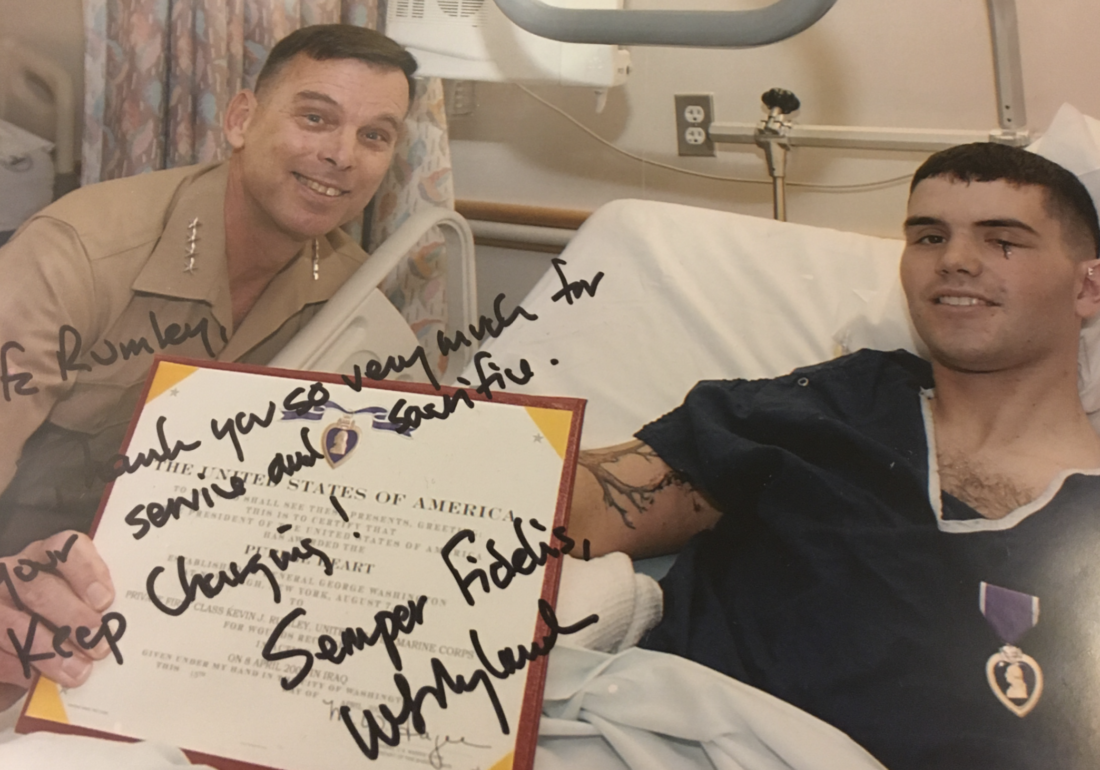Kevin Rumley enlisted in the U.S. Marine Corps in 2003, directly out of high school. In 2004, he was injured by an improvised explosive device on the Syrian border of Iraq. He notes 26 members of his battalion were killed by such devices. Rumley underwent 32 surgeries. Doctors believed he’d never walk again, but he beat the odds. Nevertheless, he says, “My life was forever changed.”
What drew you to enlist?
My father was in the Marines. Growing up in northern Virginia, the military had a strong presence and influence. After 9/11, I had a robust internal drive toward service. I remember skateboarding down to the recruiter’s office with my long, bleached blonde hair and saying, “I want to join the Marines and I want to be a rifleman.” The recruiter was happy to oblige.
How has your military service influenced who you are today?
The military profoundly shaped who I am today. My entire outlook on life was morphed from my combat experience. Losing close friends at such a young age has lasting implications. For many veterans, a lost sense of connection and purpose emerges after serving in the armed forces. I eventually realized that the principles of service taught in the Marines can carry over into my civilian life. Just like in the infantry, you need that community/tribe to survive! Now that I am out of the Marines and working at the Buncombe County Veterans Treatment Court, I repeatedly see the significant role community and connection play in the recovery process of our justice-involved veterans’ lives.
When it comes to discussing service with a veteran, what advice would you offer citizens who have not served?
I feel it is important to highlight that veterans are not a monolith. Every veteran’s experience is different. Only about 10% of the armed forces experience combat, despite depictions of veterans in media and news to the contrary. For civilians, it is important to understand that a veteran is a human being first. I would argue that thanking someone for their service is completely appropriate when coming from a place of authenticity.




Thanks for sharing another veteran story.